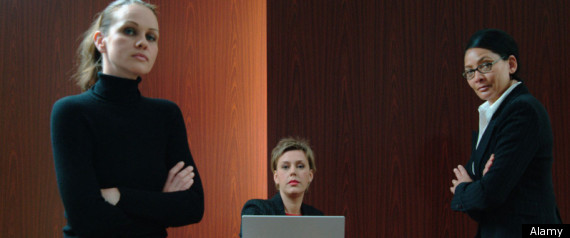 It will take another 98 years for women to achieve pay parity with their male counterparts as they annually lag £10 000 behind, according to a report from the Chartered Management Institute.
It will take another 98 years for women to achieve pay parity with their male counterparts as they annually lag £10 000 behind, according to a report from the Chartered Management Institute. The CMI has calculated that on average female managers are paid £31,895 per year, whereas men are earning £42,441 in the same role. Despite women's pay rising overall this year at a faster rate than men's, the CMI still said it would take 98 years to reach equal pay in managerial roles.
The widest wage gap in Britain is in Northern Ireland, where male managers are being paid £13,793 more than their female colleagues.
To make matters worse, women have been harder hit by the recession because a greater number of female workers has lost their jobs in the past 12 months.
On the other hand, in more junior managerial roles, women are now earning more than men. They are earning £602 more than men at the same level.
A report by Lord Davies for the government this year recommended that companies should double the number of women on their boards by 2015. If they do not, they could face government measures to enforce it.
Lord Davies said on Wednesday progress since February had been "encouraging", but more needed to be done. "Many companies can be proud that they have set out their own targets towards achieving greater diversity on their boards, but there are others who are dragging their feet," Lord Davies told the BBC.
"The rate of female appointments since March is still well below the 25% target that my panel has set, with 47% of all FTSE 250 companies continuing to have all-male boards".
The gender pay gap in Britain remains among the highest in the European Union, despite equal pay legislation coming into force nearly 40 years ago.
Origin
Source: Huffington
No comments:
Post a Comment